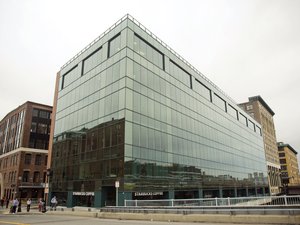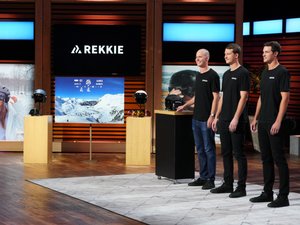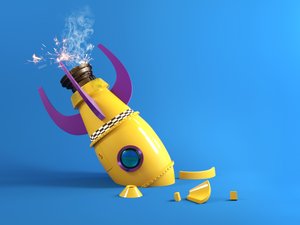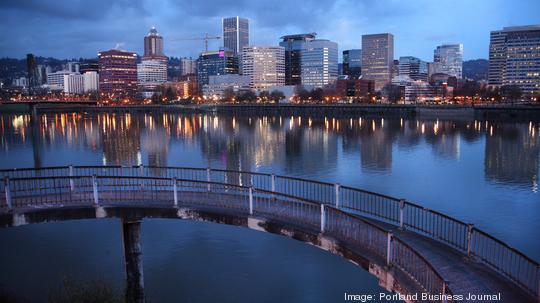
Welcome to the National Beat, a weekly look at the people, companies and ideas that are shaping America’s innovation economy. Want this rundown of startup deals, exclusive insights and business intelligence to power your workweek? Become an Inno+ member today.
The Big One: Where techies get paid
Where should you live if you want to make the most money as a software engineer? The Bay Area, Seattle or New York City.
That's according to a new report from Levels.fyi, a site that analyzes tech salaries at companies across the world. It recently published its annual compensation report, which analyzed top-paying companies for software engineers, the highest-paying titles and where engineers earned the most compensation.
Not surprisingly, the Bay Area was the top-paying location for total engineer compensation in the U.S. The median pay for software engineers in the Bay Area, which includes stocks and bonuses, is $249,000. The next highest is Seattle, at $225,000, followed by New York City, at $185,000.
Several other thriving tech hubs are among the top 10, including Portland, Oregon, at No. 5, where engineers make $169,000 a year. In Austin, Texas, the seventh-best paying metro, engineers make $167,000. In Denver and Boulder, Colorado, engineers earn $154,000.
READ MORE: Here are the top cities for software engineer pay
Startups to watch
- Neocis, the maker of a surgical robot that can assist dentists during implant surgeries, raised $20 million in a funding round led by Mirae Asset Financial Group and NVentures, Nvidia's venture capital arm. The startup's robot can map out implant procedures for dentists and guide their hands during surgeries to execute the plan, Miami Inno reports.
- Burro, a startup that makes a fleet of agricultural robots, raised $24 million in new funding. Burro's robots are autonomous vehicles that use artificial intelligence to reduce human labor on farms by performing tasks like transporting crops, PHL Inno reports.
- Niron Magnetics, a startup that's developing magnets to be used in electric vehicle motors, raised $86 million in new funding. Its magnets are made without rare-earth materials. Most magnets in EV motors are typically made from rare earth minerals, which are expensive and currently processed almost entirely in China. Niron was recently named one of the best inventions of 2023 by TIME Magazine, Minne Inno reports.
- PerformYard, founded a decade ago to make the employment performance management process easier for companies and managers, has scored its first major outside investment in a $95 million equity round. Previously raising just a $3 million seed round, its customers include Mitsubishi Chemical America and Berkshire Grey, DC Inno reports.
- Recurrent, a startup that provides data on used electric car batteries to EV buyers and sellers, raised a $16 million Series A round. Recurrent, founded in 2020, allows EV buyers to see reports on a car's range, and it provides EV drivers with data on their car's battery, Seattle Inno reports.
AI is everywhere at CES
Artificial intelligence is everywhere at this year’s Consumer Electronics Show this week, finding its way into the semiconductor industry, personal computers, automobiles and video games, Bay Area Inno reports.
Artificial intelligence powerhouse Nvidia unveiled three new AI graphic chips meant for personal computers, including its RTX chip line primarily meant for gamers.
Intel unveiled a chip for autonomous vehicles that automakers can use in cars of all types, rather than segmenting them based on whether a car is for the economy or luxury segments.
And Mountain View startup Kodiak Robotics unveiled a driverless semi-truck.
READ MORE: Intel, Nvidia, AMD hawk AI products at Consumer Electronics Show
Weird and wired: An autonomous draft beer robot
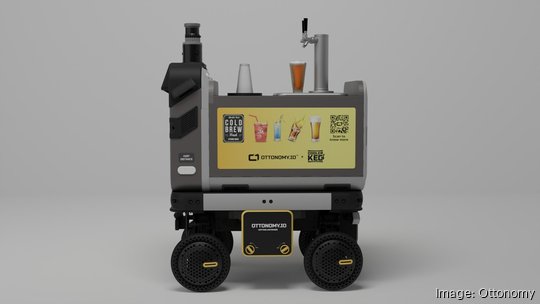
Draft beer and technology unite. A portable cooler brand launched by a Northern Kentucky couple made its debut this week at CES.
Cooler Keg, a startup developing a portable draft bar inside a classic-sized stainless-steel picnic cooler, unveiled the Ottobot Brew, an automatic draft beverage robot. The startup says the Ottobot Brew can dispense a variety of cold drinks, including beer, cocktails and even coffee, and it's suitable for use at stadiums, hotels and other events.
READ MORE: Cooler Keg partners with California-based Ottonomy to debut robo-bartender at CES

